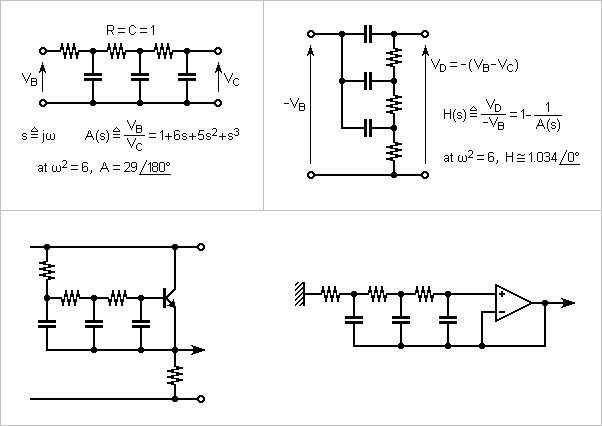Release: What Are hardware resources?
In today’s digital earth, your computer’s efficiency hinges considerably on the effectiveness of its hardware resources. But what precisely are hardware methods, and why are they so crucial? Simply put, hardware methods refer to the physical the different parts of a method offering the mandatory help for processing tasks. These parts include the CPU, RAM, hard disks, and more. Understanding how these methods function and how exactly to enhance them can make a big difference in how well your system operates.
In this information, we will jump in to everything required to understand about hardware methods, from the basic principles to sophisticated efficiency hardware resources optimization. Whether you are an informal computer person or someone looking to enhance their technology startup, this manual will be helpful.
What Are Electronics Resources?
When speaking about hardware methods, we refer to the physical units and parts that the computer or other digital systems use to execute tasks. These methods are required for the system to run programs, process knowledge, and talk with additional devices.
In easy terms, hardware methods is visible hardware resources as the “tools” that the program employs to accomplish its job. Like, whenever you start a credit card applicatoin on your computer, the CPU and RAM interact to implement and run that program.
Kinds of Electronics Resources
To completely understand the concept of hardware resources methods, it’s crucial to comprehend the several types of methods that make up your system. Let’s break them down:
CPU (Central Running Unit)
Usually called the “brain” of the computer, the CPU is responsible for executing directions and handling data. The stronger your CPU, the quicker your system will conduct projects like gambling, video modifying, or running complicated programs.
RAM (Random Accessibility Memory)
RAM is the short-term memory of your system. It shops knowledge briefly while you are positively applying it. The more RAM your system has, the more programs and knowledge it can handle concurrently, improving multitasking performance.
Storage Devices (Hard Drive/SSD)
Hard drives (HDD) and Stable State Pushes (SSD) are the long-term memory of your system, wherever all your data is stored. An SSD, being quicker than an HDD, may considerably improve your system’s start time and application load speeds.
Network Interfaces
These are the parts that allow your system for hardware resources connecting to systems, such as for example Ethernet ports or Wi-Fi cards. A fast and reliable system interface may substantially improve web rates and online gambling experiences.
Input/Output Devices
These devices allow an individual to talk with the system. They include keyboards, rats, watches, and printers. While they might not straight influence hardware resources inner efficiency, they’re however important parts for person experience.
Energy Present
The ability present device (PSU) provides the mandatory electrical energy to all the the different parts of the system. A well balanced and reliable PSU assures that hardware methods are given the necessary power to execute efficiently.
How Electronics Resources Influence System Performance
The effectiveness of your hardware methods straight influences hardware resources your system’s over all performance. Here’s how various parts come right into play:
CPU and RAM: If your CPU is underpowered or your system lacks ample RAM, it’ll struggle to run purposes, specially those that require high handling power, such as for example game titles or qualified software.
Storage Devices: Slow hard disks can cause your system to take lengthier to boot up and load programs. Upgrading to an SSD may significantly increase your system’s response times.
Network Resources: A slower or unreliable system interface may cause insulate and setbacks, especially when streaming or working online. A powerful system source is essential for easy performance.
Powerful management and optimization of your hardware methods can lead to improved productivity, quicker task completion, and an easier over all experience.
How exactly to Optimize Your Electronics Resources for Better Performance
Optimizing your hardware methods assures that the program runs efficiently without squandering power or time. Below are a few tips to get the most from the hardware:
Monitor Your System’s Source Utilization
Using source tracking instruments, like Task Manager on Windows or Activity Monitor on Macintosh, may allow you to track how your hardware methods are being used. Watch on the CPU, memory, and storage to make sure they aren’t overburdened.
Upgrade Electronics When Required
If your system is slowing down, it may be time and energy to update some hardware. Introducing more RAM, upgrading your drive to an SSD, or adding a quicker CPU may raise your system’s performance.
Optimize Software for Effectiveness
Make certain that the application you use is enhanced to make use of hardware methods efficiently. Avoid running unwanted history processes that eat valuable program resources.
Electronics Resources and Virtualization
Virtualization engineering lets you run numerous electronic models (VMs) on a single physical program, splitting the hardware methods across these various environments. While this can maximize hardware effectiveness, additionally, it places a stress on the accessible methods, perhaps slowing down the system if not managed properly.
How Virtualization Operates: Virtualization application like VMware or Hyper-V divides the system’s hardware methods between electronic machines.
Performance Influence: Proper allocation of methods such as for example CPU cores and RAM is important in ensuring that VMs conduct optimally without affecting the efficiency of the variety machine.
Troubleshooting Electronics Source Dilemmas
Each time a program decelerates or activities crashes, the problem frequently is based on insufficient hardware resources. Below are a few frequent issues and solutions:
CPU Overload: If your CPU is continually running at complete volume, consider shutting unwanted purposes or upgrading to a stronger processor.
Minimal RAM: When your program runs out of RAM, it begins making use of your storage as short-term memory, which could gradual points down. Introducing more RAM may resolve this issue.
Computer Room: Running minimal on storage may also influence performance. Regularly pick up your drive or move to a bigger SSD.
The Future of Electronics Resources
The continuing future of hardware hardware resources methods looks promising, with constant scientific advancements. The development of quantum processing, AI-driven processors, and next-generation SSD technologies will revolutionize just how we talk with systems.
Quantum Processing: Quantum processors will allow for unprecedented computational power, revolutionizing industries like cryptography and medical research.
Synthetic Intelligence (AI): AI is enjoying a position in optimizing source management by predicting and assigning hardware methods based on hardware resources program needs.
Storage Evolution: As SSD engineering continues to enhance, we could expect even faster rates and more storage options for all kinds of devices.
Usually Requested Issues (FAQ)
1. What are hardware methods in easy terms?
Electronics methods refer to the physical hardware resources the different parts of a computer, including the CPU, RAM, storage units, and system interfaces, that help the system to execute tasks.
2. How do I check always my computer’s hardware methods?
You can check always your system’s hardware methods by utilizing built-in instruments like Task Manager (Windows) or Activity Monitor (Mac), which show use of CPU, RAM, and storage.
3. What happens if my hardware methods are overused?
If your system’s hardware methods are overused, it can result in gradual efficiency, crashes, or program instability. Proper management and typical upgrades may reduce such issues.
4. May upgrading hardware methods improve my computer’s efficiency?
Yes, upgrading hardware methods, such hardware resources as for example adding more RAM or changing to an SSD, may considerably improve your computer’s rate and responsiveness.
Realization: Understanding and Optimizing Your Electronics Resources
In summary, hardware methods play a fundamental position in the efficiency and effectiveness of any processing system. From the CPU to RAM, storage units, and system interfaces, each element performs together to provide the mandatory help for the system’s tasks. By understanding how these methods interact, you may make educated decisions hardware resources to improve your system’s capabilities.
Optimizing hardware methods through correct management, timely upgrades, and troubleshooting can lead to an easier and quicker processing knowledge, whether you’re focusing on everyday projects or running resource-intensive applications. As engineering continues to evolve, staying up-to-date with hardware developments and efficiently controlling your methods will ensure your system remains at top performance.
Ultimately, buying the best hardware and sustaining a healthy utilization of your system’s methods won’t just increase the lifetime of your gear but additionally offer you a more pleasant and effective digital experience.











Leave a Reply